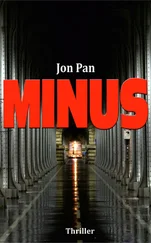Dennis Yates - Minus Tide
Здесь есть возможность читать онлайн «Dennis Yates - Minus Tide» весь текст электронной книги совершенно бесплатно (целиком полную версию без сокращений). В некоторых случаях можно слушать аудио, скачать через торрент в формате fb2 и присутствует краткое содержание. Жанр: Триллер, на английском языке. Описание произведения, (предисловие) а так же отзывы посетителей доступны на портале библиотеки ЛибКат.
- Название:Minus Tide
- Автор:
- Жанр:
- Год:неизвестен
- ISBN:нет данных
- Рейтинг книги:3 / 5. Голосов: 1
-
Избранное:Добавить в избранное
- Отзывы:
-
Ваша оценка:
- 60
- 1
- 2
- 3
- 4
- 5
Minus Tide: краткое содержание, описание и аннотация
Предлагаем к чтению аннотацию, описание, краткое содержание или предисловие (зависит от того, что написал сам автор книги «Minus Tide»). Если вы не нашли необходимую информацию о книге — напишите в комментариях, мы постараемся отыскать её.
Minus Tide — читать онлайн бесплатно полную книгу (весь текст) целиком
Ниже представлен текст книги, разбитый по страницам. Система сохранения места последней прочитанной страницы, позволяет с удобством читать онлайн бесплатно книгу «Minus Tide», без необходимости каждый раз заново искать на чём Вы остановились. Поставьте закладку, и сможете в любой момент перейти на страницу, на которой закончили чтение.
Интервал:
Закладка:
The young woman had been a complete surprise. He hadn’t heard her car-only the snapping branches as she made her way down to the elk-and leaving him barely enough time to kick some dirt over the coals. Hiding in the shadow of a large cedar trunk, he was surprised to see her gently stroking the elk’s side. She’d also talked to it, but too faintly for him to hear, like his mother did when he’d gone with her to church. What was the woman doing here? Was she a cultist, like some of his mother’s family back in Russia? Americans these days never ceased to puzzle him-so many were soft and pliable and anxious to put their lives into the hands of others, to believe in something.
The last time he’d heard his name was when he’d left his mother. “Mikhail,” she’d pleaded, “Don’t leave with those men.”
That had been over twenty years ago.
No one was allowed to call him by his name anymore, not even the one he’d been given on a fake passport long ago. To speak his name now was forbidden even within his innermost circles. There were ears everywhere, he’d warned. That bottle fly on the windowsill could be a microphone, that innocent looking child riding a bicycle an accomplished spy. The only way to refer to him in conversation was to place your hand on the tattoo, as if you were making a pledge to the crude image of the Goyaesque Cyclops he’d ordered needled into your arm.
He feared the lawmen would come again someday. Life had taught him that a secret could only stay buried for so long. They were like stones the earth worked to the surface, the cobble he’d helped clear from his family’s field every year. On moonlit nights he used to watch them push upward from the dark loosened soil, as if they were the tops of skulls. No matter how many you stacked in a pile every year, there were always more coming, and he used to imagine they might have been troops that had once frozen to death there, only they weren’t aware of it, had believed they’d only just awakened from a long night’s sleep in their earthen cribs.
Shortly after his release from prison, a rumor had spread that he’d been killed by an old enemy. Over time even the lawmen began to accept it. In five years there hadn’t been a single confirmed sighting of the one-eyed, longhaired con that some newspapers once called the mad monk. Still, Cyclops had known better than to get too comfortable. A cop only had to suspect you were up to no good to take you in and feed you through his national computer system, a giant brain Cyclops hated the most in the world because it didn’t bleed as a man did.
The second thing in the world Cyclops hated most was the pursuit of money-it drained him, made him feel like a dog rather than a man. For many years it stole from his proud, fiery inner core and forced it into prostitution, sent it drifting through dark alleyways until he found his way out and on top. But even having the hard work done by others didn’t matter much. You still had the worries, the heavy tax on a fertile imagination that should have been reserved for higher pursuits.
It wasn’t necessarily the money itself that he had a problem with. Cyclops never harbored any illusions that he could live without it. He’d chosen to live frugally, as years of riding the rails had taught him. He’d learned early on that no one was immune to robbery, and he’d quietly taken his money and converted it into silver and gold, buried Coleman coolers full of it across the country in a pattern he’d once drawn on a map during one of his frequent visions. But there was more than enough now in his “constellation of hoards” that Cyclops would never have to worry for money again, and yet he could no longer stop himself from wanting to accumulate more. What was once a need to make a living had somehow transformed into an obsession and he loathed himself for it.
Chapter 13
Under normal circumstances his people rarely asked for his help, but the situation in Traitor Bay was bigger than they could handle and they feared the rot had spread much too deep. Word came to him while he dozed in a boxcar near Tucson by a boy with large terrified eyes. The boy leaned his head inside the darkness and his voice trembled. Children were fast and light. They made good messengers, could out run the railroad cops who came at you with their clubs. Cyclops cursed the child anyway. He’d been approaching the end of an important dream, anticipating a vital teaching. Cyclops had a lot of dreams of this nature, visions that would forewarn him with signs. He’d started having them at the age of ten, had seen his father drown in the icy river days before leaving for St. Petersburg on a business trip. It was reported as an accident after it happened, but later his mother told him it wasn’t true, that the other driver who’d caused his father’s death had been an assassin. Cyclops father, an intelligence officer in the KGB, had a lot of enemies.
In this boxcar dream he was back at the moldy plankboard house of his childhood, watching his mother in her dusty black dress with the lace trim. She’d reminded him of a crow standing in front of the roaring fireplace, her glassy eyes lifted toward something above his head. When he’d turned to look up, he heard the boy’s voice, and when he sat up in the semidarkness, his face was struck by a square of yellow light beaming from a rusted rivet hole in the ceiling of the boxcar. His hair was kept parted above his good eye, so that it appeared to be staring out from the center of his forehead. When the boy saw him, he screamed and ran off, and when Cyclops thought he heard the boy’s father calling, he smiled and knew the boy would one day be fine. Not right away, of course, for a strong impression was like a sliver lodged into the flesh. And not unlike the body, the boy’s mind would need time to build up enough puss before it could expel it.
He was making far better progress now walking down the highway, listening to the surf hiss against the cliffs far below, feeling its tendrils of mist. If he had the time he would have liked to have climbed down to the water and rinse his face in it. It had been years since he’d ventured this far off the edge of the railway network, his iron web. The ocean brought back memories of when he first saw America from the deck of a merchant ship, drenched in icy spray, drinking vodka to stay warm and singing with the men his mother had begged him not to leave with. What a different person he’d been back then, still more a boy than a man, wide-eyed and dream-led and utterly oblivious to what was in store for him.
He was hit by a sudden wave of nausea that made him stumble to the side of the highway. A tide of hot bile rose up to the roof of his mouth and caused him to choke. He hadn’t felt this alive for months, with the elk he’d already eaten deep inside him and its timeless wild soul struggling against the coiling snake of his guts. This is turning out to be a better trip than I imagined, he thought, wiping the acid from his mouth.
Having been distracted by his digestive Chernobyl, he’d failed to notice the headlights coming from behind and he knew it was too late to try and hide in the undergrowth. When the Volkswagen slowed, he saw the face of the elk-worshipping woman inside. She pulled onto a shoulder several yards ahead and waited for him to approach, but he crossed the road to give her a wide berth.
“Are you okay mister?” she asked.
Pretending he hadn’t heard her, Cyclops kept moving through the silver light coming from her car. He briefly turned his head so that she could get a glimpse of his face. Usually that’s all it took to get people to leave him alone and let him be on his way. He was shocked to see her standing outside of her car watching, her hands thrust into the deep pockets of her jacket.
Читать дальшеИнтервал:
Закладка:
Похожие книги на «Minus Tide»
Представляем Вашему вниманию похожие книги на «Minus Tide» списком для выбора. Мы отобрали схожую по названию и смыслу литературу в надежде предоставить читателям больше вариантов отыскать новые, интересные, ещё непрочитанные произведения.
Обсуждение, отзывы о книге «Minus Tide» и просто собственные мнения читателей. Оставьте ваши комментарии, напишите, что Вы думаете о произведении, его смысле или главных героях. Укажите что конкретно понравилось, а что нет, и почему Вы так считаете.












